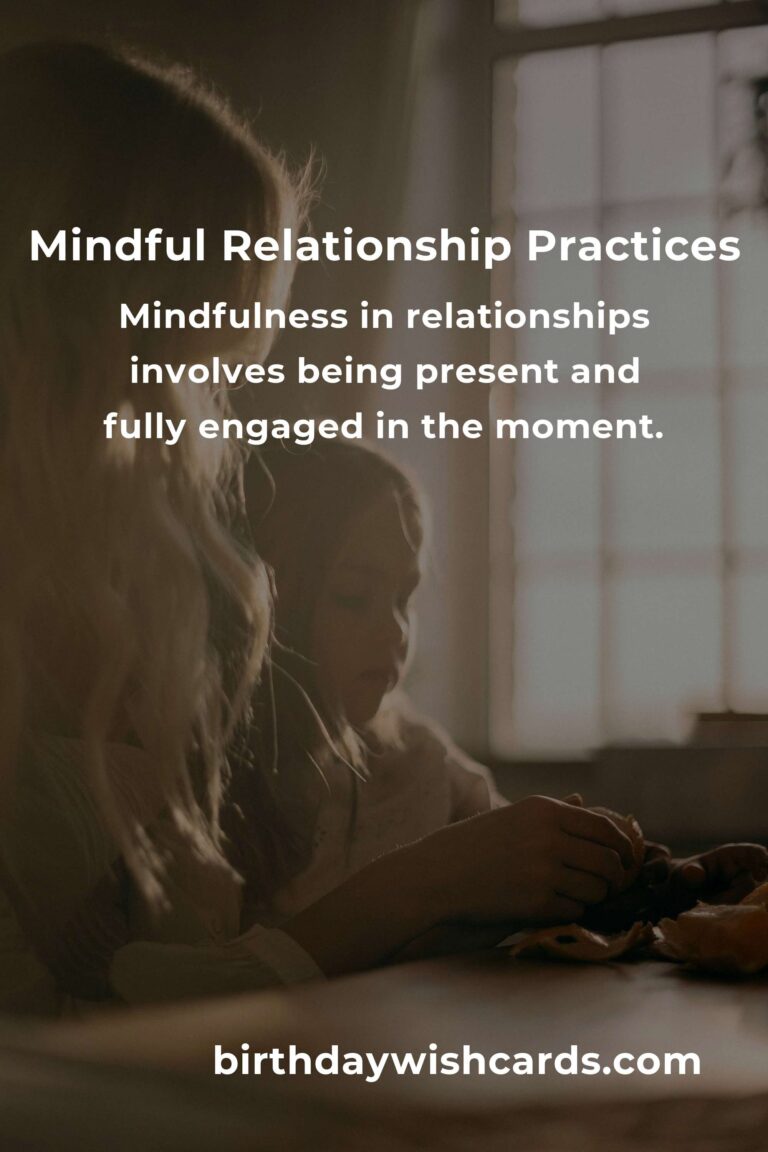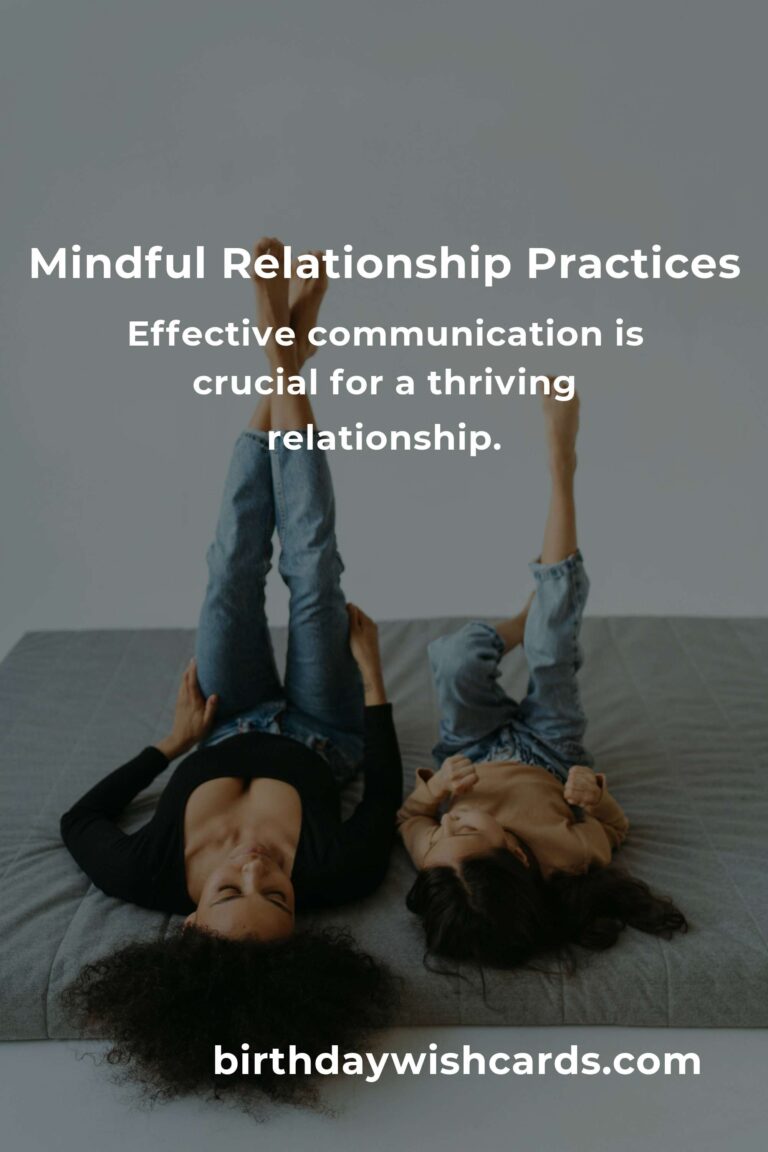
In today’s fast-paced world, maintaining a healthy relationship can be challenging. However, by incorporating mindfulness into your interactions, you can build a more profound connection with your partner. This guide will explore the essential components of creating mindful and healthy relationships that last.
Understanding Mindfulness in Relationships
Mindfulness is the practice of being present and fully engaged in the moment, without judgment. In relationships, this means actively listening to your partner, being aware of their emotions, and responding thoughtfully. Mindfulness can help reduce conflicts and misunderstandings, leading to a more harmonious partnership.
Communication: The Foundation of Any Relationship
Effective communication is crucial for any relationship to thrive. Mindful communication involves speaking clearly, listening actively, and responding without defensiveness. This creates a safe space for both partners to express their thoughts and feelings openly.
Developing Emotional Intelligence
Emotional intelligence is the ability to understand and manage your emotions, as well as the emotions of others. By cultivating emotional intelligence, you can improve your empathy, which is essential for understanding your partner’s perspective and fostering a supportive relationship.
Practicing Gratitude
Expressing gratitude for your partner and the relationship can enhance your bond. Regularly acknowledging the positive aspects of your relationship can shift your focus from problems to solutions, improving overall satisfaction.
Setting Healthy Boundaries
Boundaries are necessary for maintaining a healthy relationship. They ensure that both partners feel respected and valued. Clearly define your needs and limits, and encourage your partner to do the same. This mutual respect and understanding can prevent resentment and promote a balanced partnership.
Nurturing Self-Care and Personal Growth
Maintaining a healthy relationship requires both partners to focus on their personal well-being and growth. Encourage each other to pursue individual interests and self-care practices. This not only strengthens your relationship but also supports each partner’s personal development.
Building Trust and Transparency
Trust is the cornerstone of any successful relationship. Being transparent and honest with your partner fosters trust and security. Over time, trust builds a solid foundation for a lasting and fulfilling relationship.
Resolving Conflicts Mindfully
Conflicts are inevitable in any relationship, but they don’t have to be destructive. Approach disagreements with a mindset of understanding and resolution. Use mindfulness techniques to remain calm and focused on finding a solution that benefits both parties.
The Role of Forgiveness
Forgiveness is an essential component of a healthy relationship. It allows both partners to move past mistakes and grow from them. Practice forgiving your partner and yourself to release negative feelings and strengthen your bond.
Conclusion: Cultivating a Mindful and Healthy Relationship
Mindful relationships require effort, patience, and commitment. By embracing mindfulness, open communication, and emotional intelligence, you can cultivate a fulfilling and loving partnership. Remember, the journey to a healthy relationship is continuous and requires both partners to actively participate and grow together.
Mindfulness in relationships involves being present and fully engaged in the moment. Effective communication is crucial for a thriving relationship. Emotional intelligence improves empathy and understanding in relationships. Expressing gratitude can enhance your relationship bond. Setting healthy boundaries ensures both partners feel respected and valued.
#MindfulRelationships #HealthyRelationship #Mindfulness #EmotionalIntelligence #Communication

